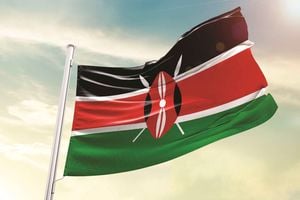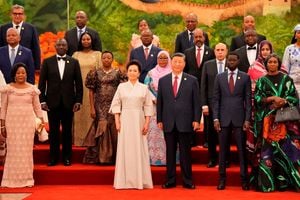
Outsourcing motor vehicle licensing function away from NTSA would also help to create jobs.
Governments the world all over tend to use law to grant themselves more and more regulatory powers.
But so doing, they shoot themselves in the foot. This is because governments generally desire to create as much employment as possible. But regulation has a tendency to kill jobs. This is because whatever regulatory power the government grants itself through law is work denied to private sector which can do the same task more efficiently.
Take for instance government monopolisation of industrial certifications in goods production industry.
We start this discussion in understanding the whole connection between goods and sciences.
This helps in understanding how government regulations kills jobs. One must bake a cake before thinking how to distribute it.
Natural sciences like physics and chemistry are in the realm of "creating valuable goods" out of the natural world. Social sciences like law and banking main concern is the fair and just distribution of those goods.
That then means in the hierarchy of public goods natural sciences should rank higher than social sciences. Otherwise, what is there to bank (read banking services) if there are no tradeable goods to be exchanged in the first instance? What is there to litigate (read lawyers) about if there are no innate goods of value in a society made by natural sciences?
A country's wealth is defined by a measure called gross domestic product. That is the total value of goods and services produced in a country within a set period.
Excellent services
Basically "services" are a superstructure that are hinged on "goods". Goods must therefore expand in value for services to expand as well. Of course there are some countries or even cities that have positioned themselves as singular producers of excellent services. Like London in banking services.
To produce goods, natural science knowledge is needed. Physics. Chemistry. Biology.
But one sad fact of a country like Kenya is the under utilisation of science graduates and science knowledge generally. Our economy seems to be so biased against science graduates that very few tend to have any post-graduate solid occupation.
Graduates of bachelors of sciences from Chiromo campus in University of Nairobi tend to drift towards high school teaching jobs after undertaking a post-graduate teaching diploma. Others get engaged by pharmaceutical companies to become medical representatives to pitch for drugs in various hospitals.
Of course the lucky few drift towards academia after undertaking masters classes.
Therefore the core science knowledge obtained in classes remains underutilised.
But, incidentally, the government can, through mere legal reforms, creatively and innovatively create better paying jobs for these science graduates.
Take for instance potential unbundling of Kenya Bureau of Standards (Kebs) standardisation monopoly through legal reforms. It is established by Standards Act chapter 496 laws of Kenya.
Kebs main function is to provide standardisation in industry and commerce. It provides facilities for examinations and testing of commodities; certification of industrial products.
But why should these functions be monopolised by Kebs? Kebs has no practical capability to check all or even an adequate sample of goods in circulation in Kenya. That monopolisation causes testing backlog and incentivises unscrupulous traders to sell uncertified goods. It creates opportunities for corruption by Kebs staff as everyone is rushing to seek their services.
Legal services
Think of a country where legal services were only offered by attorney General chambers. Millions of citizens with litigation and conveyancing matters would be milling at Sheria House.
The answer lies in reforming Standards Act and allowing private certified scientists to offer these services. Kebs roles should be restricted to maintaining to setting standards and industrial discipline. Just like advocate complaints commission in the legal profession.
Thousands of sciences jobs would be created. Probably Kebs would set professional entry standards to ensure only qualified scientists have the legal mandate to carry out the certification work.
This would spur creativity and innovation as scientists would find easier certification processes at grassroots level.
Think of unbundling the monopoly of motor vehicle inspectorate services currently enjoyed exclusively by National Transportation and Safety Authority.
Public service motor vehicles from Muranga County burn fuel heading towards NTSA regional inspectorate offices in Thika or Embu to seek these services more than 70Km away. NTSA has made an attempt to devolve these services but that can only be a feeble attempt to remedy backlogs and huge queues of motorists that seek these services. Thika NTSA inspection centre serves 200 vehicles per day. How practical is it for the unit to carry out proper inspection under such huge demand circumstances ?
The World Bank has announced an intention to fund the expansion of the facility by pumping Sh600 million.
The law that grants NTSA motor vehicle inspectorate powers is the Traffic Act. About 2 years ago the law was amended to grant NTSA power to outsource inspectorates noting as at 2023 NTSA had only 17 units.
Probably the government needs to hasten the implementation of this new law. Such outsourcing would create many mechanical engineering jobs.
Outsourcing motor vehicle licensing function away from NTSA would also help to create jobs.
Private motor vehicle licensing authorities working under close NTSA supervision would work better.
There are many examples how this deregulation can create jobs.
Some might argue this proposed deregulation can lower standards as private sector might be more concerned with profit. This is not true. Arguing so is like saying state law chambers is more efficient than private law firms.
Maybe the best criticism might be the argument that private sector outsourcing might make services more costly. The remedy to this is to license more private sector players in any deregulated sector so that competition pushes prices downwards. Public sector can also remain to offer services to the very poor.
Gov Irungu Kangata PHd in law Muranga County Governor Email [email protected]










